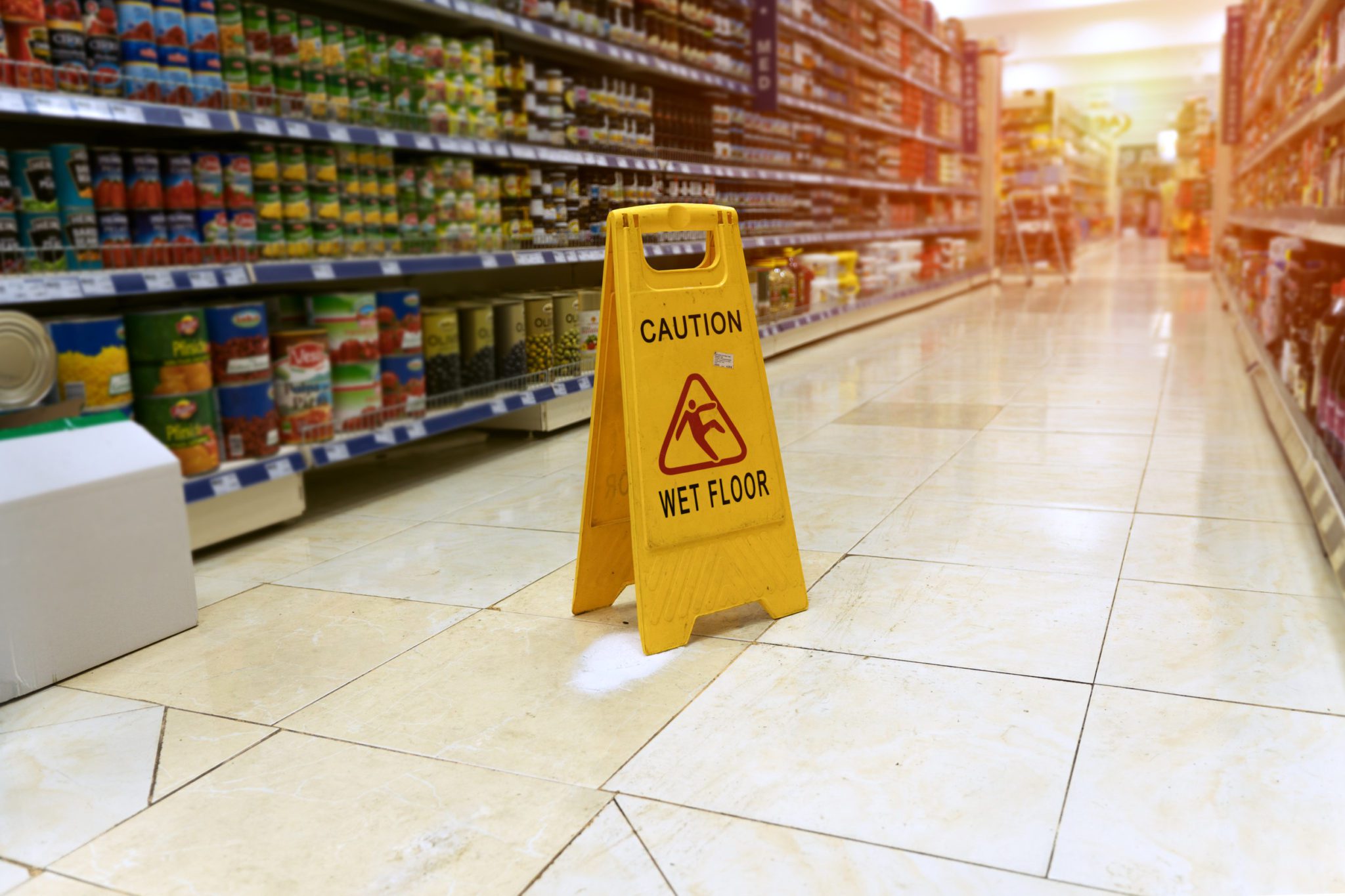Slip and Fall in Florida: Negligence Decides Compensation
If you have suffered a slip and fall injury in a Florida business establishment, you may be looking at expensive medical bills, not to mention damages to any property on your person at the time of injury. Most likely, the danger that caused the accident was not sufficiently presented to you, so you would think that you deserve compensation.
And you are right! Florida rewards compensation to victims who are injured in a business establishment by a known danger for which no action was taken.
However, Florida premises liability also states that, if the defendant proves any negligence on your part, your compensation will be lowered by the same percentage as your involved negligence.
This push and pull of argued negligence is called “comparative negligence”. In this post, we will discuss how comparative negligence affects your compensation and the valid arguments you can use — or that may be used against you.
Slip and Fall in Florida
Lawsuits involving slip and fall cases almost entirely rely on whether the property owner’s negligence was the cause of the accident. Therefore, you should prepare to hear the property owner argue that you bear some amount of the blame for your comparative negligence.
Examples of legally sound arguments pinning some blame on the victim:
- You were on a part of the property where visitors are not allowed or expected to be
- You were not paying attention to your surroundings
- The dangerous condition was made clear
Florida’s “pure comparative negligence rule” will be used to determine the portion of blame that should be assigned to the property owner and how much compensation you should receive. For example, if a jury finds that you are 20 percent to blame for your slip and fall, your compensation will be reduced by 20 percent.
When arguing in court about the property owner’s comparative negligence, you will be required to prove that the property establishment had knowledge of the dangerous condition and should have taken action to resolve it.
As stated in Florida’s premises liability statute, knowledge of a dangerous condition can be proven by evidence showing that:
- The dangerous conditions existed for such a length of time that the business establishment should have known of the condition, or
- The condition occurs with regularity and should therefore be foreseeable
A slip and fall case can be fought hard by both parties, considering comparative fault and negligence is a somewhat subjective area of law. In order to maximize your success probability, make sure you have an avid, hard-fought attorney by your side. Plus, it helps to understand your case.
Does Florida Have a “Wet Sign” Law?
No, Florida does not have a “wet sign” law. However, a lack of a sign where one would’ve been prudent can still prove helpful to your slip and fall case, if you decide to initiate one. The lack of a sign notifying of potential dangers can be used as an argument against the property owner.
He or she has the responsibility to take action to resolve known dangerous conditions. Action can be taken by simply installing a wet sign. Thus, in the absence of a wet sign, inaction is grounds for negligence.
Statute of Limitations for a Slip and Fall Injury
The statute of limitations defines the maximum amount of time after an alleged offense a party is able to initiate legal action against a defendant. In Florida, the statute of limitations for a slip and fall injury is four years. If you miss this deadline, your case is very likely to be dismissed.
This four year statute of limitations is consistent with almost all personal injury cases brought in Florida’s civil courts. Additionally, the four year deadline applies to any lawsuit you want to bring against the defendant over property damage, i.e. perhaps an expensive suit was damaged by the fall.
About the Author:
Andrew Winston is a partner at the personal injury law firm of Winston Law. For over 20 years, he has successfully represented countless people in all kinds of personal injury cases, with a particular focus on child injury, legal malpractice, and premises liability. He has been recognized for excellence in the representation of injured clients by admission to the Million Dollar Advocates Forum, and named one of America’s Top 100 High-Stakes Litigators. Mr. Winston is AV Preeminent Rated by the Martindale-Hubbell Law Directory, enjoys a 10.0 rating by AVVO as a Top Personal Injury Attorney, has been selected as a Florida “SuperLawyer” from 2011-2020 – an honor reserved for the top 5% of lawyers in the state – was voted to Florida Trend’s ”Legal Elite,” recognized by Expertise as one of the 20 Best Fort Lauderdale personal injury attorneys, named one of the Top 100 Lawyers in the Miami area for 2015-2017, and one of the Top 100 Lawyers in Florida for 2015-2017 and 2019.
 Amusement Park Premises Liability and How to Stay Cool
Amusement Park Premises Liability and How to Stay Cool 

















